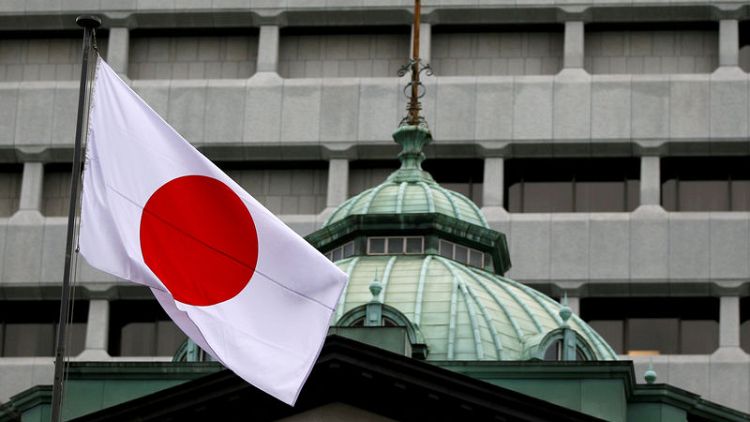By Leika Kihara
TOKYO (Reuters) - The Bank of Japan should abandon negative interest rates and a cap on long-term bond yields immediately as such crisis-mode measures are unnecessary for an economy enjoying steady growth, a former central bank executive said on Monday.
The central bank may fail to exit ultra-loose policy for years unless it drops its insistence of meeting its elusive price target at all cost, said Kazuo Momma, who oversaw monetary policy and international affairs during his stint at the BOJ.
The measures the BOJ took in July to make its policy framework more sustainable are a step forward, but not enough to address the diminishing returns and rising costs of its radical stimulus programme, he said. [nL4N1UQ6L9]
"Personally, I think the BOJ should abandon negative rates and yield curve control immediately," Momma said. "They are both steps needed only in response to a crises. It's obvious the economy no longer needs such radical steps," he told Reuters.
The BOJ has already achieved what the public wanted most by prolonging Japan's economic expansion, bringing the jobless rate to record lows and pushing up wages, Momma said.
There is thus no strong reason for the BOJ to persist in achieving its 2 percent inflation, he said, calling on the bank to focus more on the rising cost of prolonged easing.
Consumption remains weak because households cannot expect returns on their investment to rise much, while ultra-low rates are prompting firms to ramp up excessive investment, he said.
"The BOJ is putting too much emphasis on achieving its price target. It needs to change that and put more weight on how its policy affects the economy and financial developments," he said.
Only then could the BOJ make substantial tweaks to its policy framework and seek an exit from ultra-easy policy, said Momma, who retains close contact with incumbent policymakers.
Under its yield curve control (YCC) policy, the BOJ guides short-term rates at minus 0.1 percent and the 10-year bond yield around zero percent.
As its huge buying dries up bond market liquidity, the central bank last month made tweaks to its policies to allow long-term yields to move more flexibly around its target.
It also adopted for the first time a forward guidance on future interest rate moves by pledging to keep rates "very low" for an "extended period."
Momma said the measures did not go beyond addressing malfunctions in the government bond market. He also said the new forward guidance "didn't mean much" as it merely confirmed the fact rates will be kept low for years given subdued inflation.
"It's futile to focus on any change in wording for signals on future policy shifts," as the forward guidance is kept intentionally vague and would not prevent the BOJ from raising rates when necessary, said Momma, currently executive economist at private think tank Mizuho Research Institute.
"There's not much else left in terms of what the BOJ can do in minor fine-tuning of its policy."
(Additional reporting by Takashi Umekawa; Editing by Sam Holmes)



